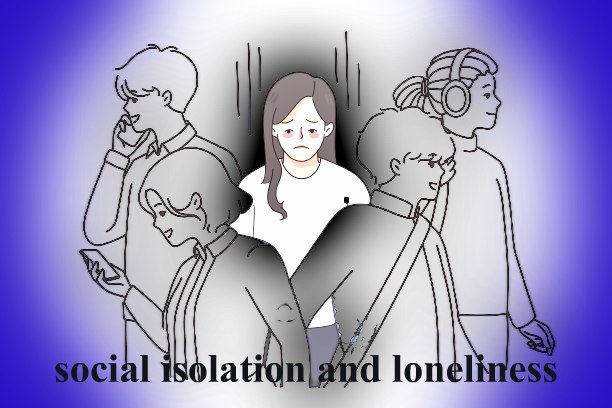Get Out Of Your Head Summary
Tag Line: Get Out Of Your Head shows you how to break the pattern of negative thinking so you can consistently entertain healthier and happier thoughts by teaching simple tips like being alone, connecting with others, and reconnecting with God.
Do you ever wonder if you’re good enough? Maybe you feel like a fraud at work as imposter syndrome takes over your thinking each day. Or has the thought that you might be wasting your life ever crossed your mind?
If you get stuck in negative thinking patterns, you’re not alone. This plague grips everyone from time to time, and these days it’s just getting worse. The threat that these downward spirals might consume us is ever-present.
Are you really stuck living like this forever? Or is there a way out?
You’ll be relieved to know that there are simple habits you can form that will help you break through the constant gloominess. And Jennie Allen teaches all about them in her book Get Out of Your Head: Stopping the Spiral of Toxic Thoughts.
With her Christian perspective and personal experiences on this topic, she identifies ways to reconnect with God. You’ll find that each of her tips will help you improve your thinking habits whether you’re religious or not.
Here are the 3 greatest lessons I’ve learned from this book:
1. You have a choice whether or not to let negative thoughts in, all you need to do is think about your thoughts.
2. Silence and solitude help you recognize and understand your pessimistic thinking patterns so you can disrupt them.
3. Your relationships with others are one of the most important tools for overcoming negative thoughts.
Are you ready to discover how to beat gloomy thoughts for good? Let’s dive right in!
Lesson 1: Think about your thoughts to realize that you can choose which ones you’ll entertain.
When interacting with people every day you’d never suspect they might deal with toxic thoughts. It’s easy to hide, especially when you’ve got a great family and a successful career.
This was the author’s case but inside her mind, she had demons that she struggled to get rid of.
It all started when she was giving some talks at a Baptist church. The first one she gave was about demons and their determination to undermine faith. Little did she know that she’d soon have some real-life experience with the topic of her sermon!
After the speech, an angry man approached her and said “we are coming for you.” Not long afterward there was a strange power outage right before her next talk.
These experiences began a spiral that ended up making Allen feel anxious all the time. Things didn’t start getting better until 18-months later when she began to think about her thoughts.
She soon realized that she had the power to choose goodness over evil, and that’s just what she did.
You might not have to deal with spiraling worries for as long as the author did. But the demon of negative thought patterns comes for us all at some point.
To overcome it, review your thoughts from an outside perspective. Next, recognize that they don’t control your ability to choose whether or not you’ll entertain them. Then, consciously decide to think better thoughts!
Lesson 2: Disrupt your pessimistic thinking patterns by spending time alone and in silence. .
How often do you get distracted? Whether it’s at work or while we’re watching a movie with a loved one, losing our focus is all too common. Sometimes we can even get sidetracked from our priorities by seemingly good things like work or friends.
But what we could all use is a little more silence and stillness to refocus on the positive.
At some point, we need help that nobody else can provide. In these moments the only way to let go of our worried minds is by letting them rest with some alone time pondering.
Science shows that spending time alone in meditation can alter your brain for the better. It helps you rewire your thinking patterns and make them healthier.
It’s not always easy to let yourself spend time alone though. Without realizing, you usually make yourself so busy just so that you can avoid your thoughts. It’s easier to flee from the fear of being alone or realizing that you need to change.
Most often your thinking patterns involve some reason for the way you feel. You’re overwhelmed because you’ve got a lot of work to do. Or You’re angry because someone cut you off in traffic.
Replace this “why” at the end of your thoughts with an action statement. Use the phrase “so I will” to shift from an unhealthy reactive mindset to a healthy proactive one.
Lesson 3: If you want to beat negative thoughts for good, you must learn the power of connecting with others consistently. .
Being alone has its benefits but there comes a point where too much of a good thing is bad. That’s where community comes in as another important aspect of life that helps you annihilate toxic thinking.
The world doesn’t make this easy though. Independence is a prized attribute. We mistakenly honor those who succeed on their own. It’s even so bad that people see the ability to ask for help as a sign of weakness rather than strength.
Instead, to become truly happy and successful, you must surround yourself with the best people. You need to be loved and seen by them if you want to beat the negative thoughts that hold you back from reaching your full potential.
Being vulnerable with others can be intimidating though. It’s especially hard if you don’t know a lot of people around you or happen to be more introverted. All you need to do is push through this to break out of your comfort zone and start reaping the benefits of connecting with your community.
Ask someone new if they want to go to lunch with you. If that’s too much, try sending an email or Facebook message to a friend you haven’t spoken with in a while.
Allen got to see the power of this when a friend confided in her about an attraction she had to a man that she’d begun messaging who wasn’t her husband. Almost immediately after sharing this with Allen, however, the problem went away!
Final Words
I always love a good book about how to stop overthinking and Get Out Of Your Head definitely didn’t disappoint on that count! I especially enjoyed that the book gives actionable tips that even those who aren’t religious can follow. Nobody will ever be immune to negative thoughts, but this great book certainly makes it easier to not have them so frequently!








